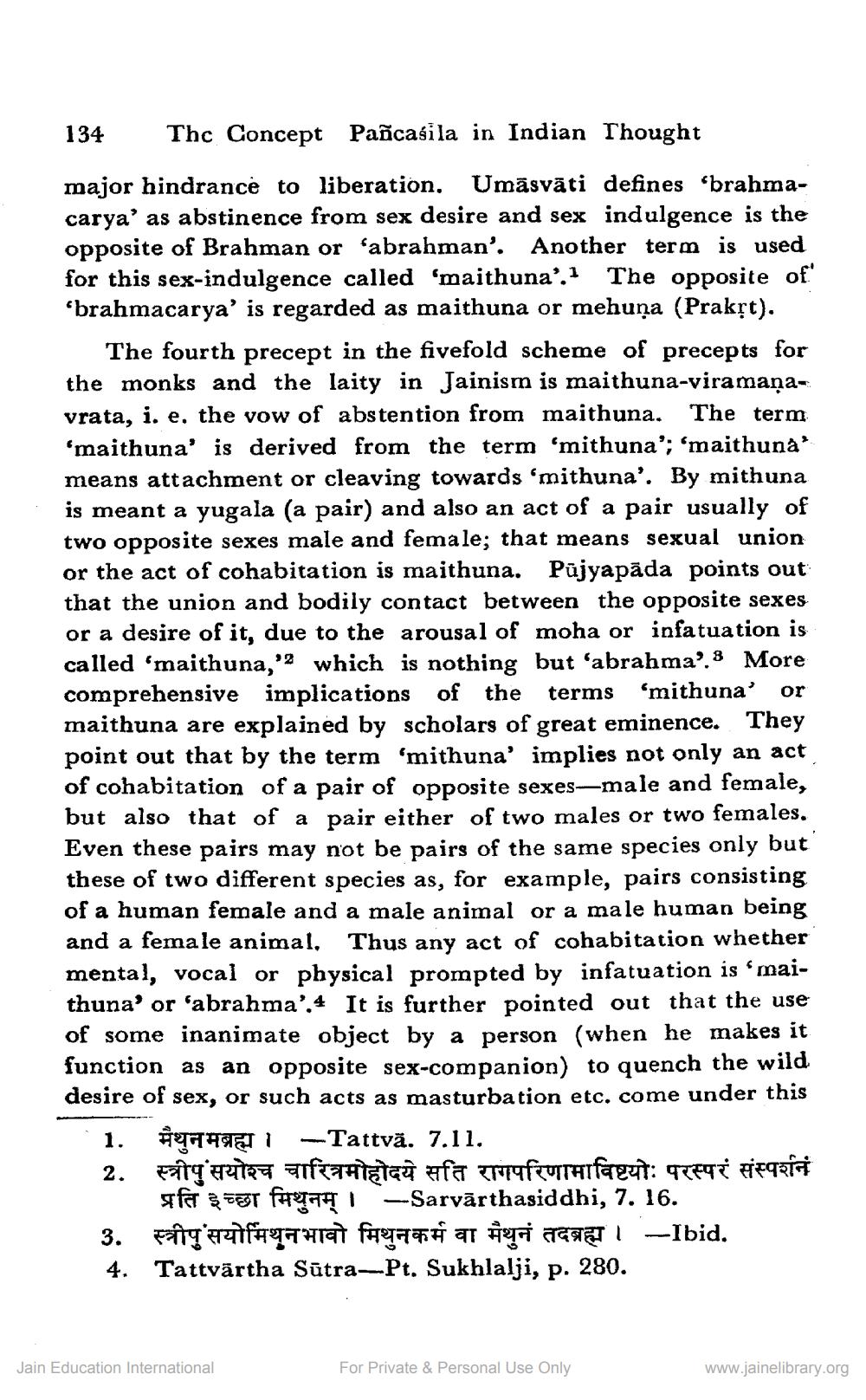________________
134
Thc Concept Pañcasila in Indian Thought
major hindrance to liberation, Umāsvāti defines 'brahmacarya' as abstinence from sex desire and sex indulgence is the opposite of Brahman or 'abrahman'. Another term is used for this sex-indulgence called 'maithuna'.1 The opposite of 'brahmacarya' is regarded as maithuna or mehuņa (Prakst).
The fourth precept in the fivefold scheme of precepts for the monks and the laity in Jainism is maithuna-viramanavrata, i. e, the vow of abstention from maithuna. The term 'maithuna' is derived from the term 'mithuna'; 'maithuna' means attachment or cleaving towards 'mithuna'. By mithuna is meant a yugala (a pair) and also an act of a pair usually of two opposite sexes male and female; that means sexual union or the act of cohabitation is maithuna. Pujyapāda points out that the union and bodily contact between the opposite sexes or a desire of it, due to the arousal of moha or infatuation is called 'maithuna,' which is nothing but 'abrahma'.8 More comprehensive implications of the terms ‘mithuna' or maithuna are explained by scholars of great eminence. They point out that by the term 'mithuna' implies not only an act of cohabitation of a pair of opposite sexes—male and female, but also that of a pair either of two males or two females. Even these pairs may not be pairs of the same species only but these of two different species as, for example, pairs consisting of a human female and a male animal or a male human being and a female animal. Thus any act of cohabitation whether mental, vocal or physical prompted by infatuation is 'maithuna' or 'abrahma'.4 It is further pointed out that the use of some inanimate object by a person (when he makes it function as an opposite sex-companion) to quench the wild desire of sex, or such acts as masturbation etc. come under this
1. TAI – Tattvå. 7.11. 2. स्त्रीपुसयोश्च चारित्रमोहोदये सति रागपरिणामाविष्टयोः परस्परं संस्पर्शनं
sfer zegt firenti --Sarvārthasiddhi, 7. 16. 3. Fantara laira fama at ARI TAETI - Ibid. 4. Tattvārtha Sūtra-Pt. Sukhlalji, p. 280.
Jain Education International
For Private & Personal Use Only
www.jainelibrary.org




